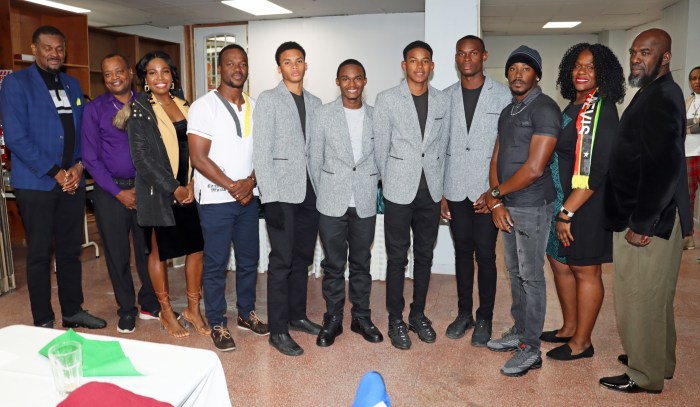
These days, Aliya LeeKong is dividing her time between developing recipes for modern Indian eatery Junoon, where she’s the restaurant’s Culinary Creative Director, and putting the finishing touches on her first cookbook, hitting shelves this fall. We caught a few minutes with LeeKong, a former banker, to learn more about each of these passion projects of hers.
You’re Indo-Pakistani and East African. How did those cultures influence you when you were learning how to cook?
Growing up, my mom would make something from her side, or I’d be at an aunt’s house and I’d learn something from the African side, and I had no idea that they were different cultures when I was younger.
It was just home cooking.
It was all home cooking. It was all the way I ate. I did realize when I was younger that some of these dishes, I couldn’t get anywhere else. There was no way I was gonna be able to eat that food so I was trying to learn a lot of those dishes, particularly the East African dishes. … I was aware that there was a scarcity factor and that I had to learn them. Otherwise, who the hell was gonna pass them on?
As you’ve grown older and cooked more, have you put a spin on any of those recipes?
Definitely. I think whenever I look at a recipe, I think about all the different types of techniques that I learned and how to change things. Every family does these recipes differently anyway, when you’re talking about home cooking. I always tweak to the technique that works for me. When I’m talking about the East African doughnuts, for example, I use rice flour to create a lighter batter and to create a lighter end result. They’re really good. They’re savory and sweet.
Tell us about your upcoming cookbook.
That’s coming out in the fall, and it’s called “Exotic Table.” That’s my aggregation of travels and cultural experiences [and] my style of cooking.
What about at Junoon — does your menu change often?
We try to add in seasonal elements in terms of accoutrements and the condiments and the sides. We continue to evolve. We really just see how the product is going; we see what people are eating. We try to replace heavy items or heavier items in the summer with some lighter items. It’s very much an organic revolution. It’s very collaborative. A lot of different people weigh in, in terms of the food and what they like.
One last question: Do you woo your husband by cooking for him?
Oh, all the time! He’s extraordinarily simple. It’s very much something layered in a casserole. Beef has to be a component. A good shepherd’s pie and he’s done.




















